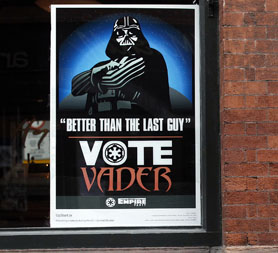Ireland: counting the political cost of the economic fall
Fianna Fáil will bear the brunt of an angry Irish electorate, but is a Fine Gael government more of the same, asks Dr Peter Stafford, an economic and political analyst based in Dublin.

The political impact of Ireland’s economic woes is being played out. Across the 43 constituencies of the Irish Republic, voters go to the polls to select 166 TDs from a record 566 candidates. In an election which will change the political landscape of the Irish Republic, many Irish commentators are making comparisons with the watershed UK election of 1997, but is a Portillo moment likely in Ireland today?
The election result is not yet known, but it will reveal a massive defeat of Fianna Fail, Ireland’s largest and most electorally successful political party, with Enda Kenny’s Fine Gael, certain to form a government. In question is whether Kenny will need to enter into a coalition with the Labour Party or a consortium of Independent TDs to secure a majority.
The downfall of Brian Cowen’s government has been a slow one; His party’s popularity has been in steady decline since last October when the extent of Irish bank debt was revealed to a shocked public, and then through Christmas when the IMF and EU bailout agreement was reached.
In his brief tenure as Taoiseach, Cowen has seen unemployment soar, emigration return and Ireland’s international reputation undermined.
In his brief tenure as Taoiseach, Cowen has seen unemployment soar, emigration return and Ireland’s international reputation undermined. During the course of the election, in individual constituencies and in the three televised leaders’ debates, those issues have become increasingly politicised, with each party promising political and economic reform, and a break from the “politics as usual” blamed for facilitating the Irish economic collapse.
Such is the battering that the outgoing Fianna Fail party is likely to receive, 39 TDs, many of whom have been sitting on the government benches, decided not to contest the election rather than face the threat of a highly public televised defeat. The early retirement of these incumbent candidates before the election means that for many who will sit up all night to watch the results come in, the chances of seeing a Portillo moment are reduced.
Nonetheless, Government Ministers – up to and including Minister for Finance Brian Lenihan (Dublin West) and the Deputy Prime Minister Mary Coughlan (Donegal South West) – are under real pressure to keep their seats. Other high profile Ministers – including one of the architects of the Northern Ireland Peace Process, Martin Mansergh (Tipperary South) – are also unlikely to survive a national swing against their party. Like the Birtish Tories in 1997, there are now very few safe government seats.
The contagion spreads beyond Fianna Fail ministers, to include the junior coalition partners. John Gormley, leader of the Green Party and Minister for Environment, Heritage and Local Government, is almost certain to lose his Dublin South East seat to one of 15 opponents, including a 23-year old Independent Dylan Haskins, who has mobilised a newly politicised, young and angry electorate on a non-party platform of political reform, accountability and free education.
Independents
Haskins and the other Independents are likely to be the success stories of this election. Opinion polls put the non-party candidates on 14 per cent on election day, in third place behind Fine Gael and Labour – ahead of Fianna Fail, the Green Party, and Sinn Fein.
Independent TDs have always been a feature of Irish politics, and have often held the balance of power in Dail Eireann. In this election, they have capitalised on a popular fear that despite promises of reform, Fine Gael is too ideologically similar to the outgoing government to deliver any real change.
While the election campaign itself has been relatively pedestrian and gaffe-free, the results are likely to be much more interesting. If the electorate truly reject business as usual, it is not at all certain if Fine Gael will form a one-party government, and all eyes will turn to Labour and the Independent candidates to provide the real shock to politics as usual in Ireland.